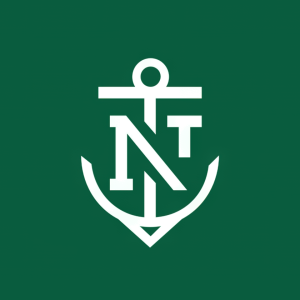New Report Reveals Six Common Drivers of Unexpected Portfolio Results
CHICAGO & LONDON--(BUSINESS WIRE)--Northern Trust Asset Management, a leading global investment manager with
As an investment manager that employs a quantitative risk-aware approach, Northern Trust Asset Management regularly partners with institutional investors and their consultants to provide them with a unique analysis of underlying risk components impacting their portfolios’ ability to achieve intended outcomes.
The more than 200 analyses at the heart of “The Risk Report” were conducted by identifying compensated and uncompensated risks in portfolios to inform adjustments needed, consistent with Northern Trust Asset Management’s core philosophy: investors should be compensated for the risks they take — in all market environments and any investment strategy.
“Anytime someone invests, they do so with a specific goal – an outcome – in mind. We appreciate that investing ultimately serves a greater purpose – and believe it should be done intentionally and as efficiently as possible,” said Northern Trust Chief Investment Officer Bob Browne.
“As the saying goes, the best laid plans often go awry,” he continued. “When portfolios don’t deliver outcomes as expected, the number one question from investors is ‘Why?’ Our quantitative investment expertise and a heritage rooted in discretionary portfolio construction means that we offer a unique lens and informed, practical perspective to help answer that question. This research demonstrates how underlying investments can inadvertently cause a drag on portfolios. And it’s especially timely for all types of investors in today’s environment given most we speak with have a heightened emphasis on finding and addressing hidden risks.”
After four years of conducting in-depth portfolio-level analysis for investors, a number of common themes and trends emerged across the data set whose more than 200 portfolios and
The Risk Report surfaces six key drivers of unexpected portfolio results, including portfolio exposure to uncompensated risks and the performance-hindering “cancellation effect.”
Institutions had nearly two-times more uncompensated vs. compensated risk
“Perhaps the most startling discovery to us was the fact that, on average, portfolios had nearly two times the amount of uncompensated risk versus compensated risk,” said Northern Trust Asset Management Head of Quantitative Strategies Michael Hunstad. “For investors, it was the fact they simply weren’t getting paid for all the risks they were taking. That’s because portfolios had become overcrowded with uncompensated risks that tended to dilute the potential for excess returns. The result was generally benchmark-like returns – at active management fees.”
Underlying portfolio holdings canceled each other out – and hurt performance
While the concept of the cancellation effect at a stock level is nothing new, the frequency of underlying holdings, style tilts and sector over- and under-weights cancelling each other out partially or completely, and the magnitude of the impact on active risk, was surprising. This is the result of investment managers within a portfolio taking opposing positions, essentially offsetting one another.
For example, the high value bias in one strategy is offset by the high growth bias in another strategy.
Other key drivers to unexpected results included:
- Hidden portfolio risks, such as one intentional style factor bringing with it unintentional exposure
- Conventional style investing led to index-like performance –with higher fees.
- Over-diversification diluted performance.
- Possible attempts to “time” manager outperformance may have proved costly.
“Too much of a good thing was certainly evident by our analysis, with respect to portfolio diversification leading to hidden and uncompensated risk,” said Hunstad. “Really understanding how a manager will interact with the rest of your portfolio, and efficiently combining different strategies, managers and factor styles, is essential to constructing a portfolio that has the potential to deliver as intended – rather than delivering unexpected results.”
The “Risk Report” is the first in Northern Trust Asset Management’s “Risk Insights Series.” To explore all the common drivers in depth, download the “Risk Report.”
About Northern Trust Asset Management
Northern Trust Asset Management is a global investment manager that helps investors navigate changing market environments, so they can confidently realize their long-term objectives. Entrusted with US
Northern Trust Asset Management is composed of Northern Trust Investments, Inc., Northern Trust Global Investments Limited, Northern Trust Fund Managers (Ireland) Limited, Northern Trust Global Investments Japan, K.K., NT Global Advisors, Inc., 50 South Capital Advisors, LLC, and investment personnel of The Northern Trust Company of Hong Kong Limited, Belvedere Advisors LLC and The Northern Trust Company.
About Northern Trust
Northern Trust Corporation (Nasdaq: NTRS) is a leading provider of wealth management, asset servicing, asset management and banking to corporations, institutions, affluent families and individuals. Founded in Chicago in 1889, Northern Trust has a global presence with offices in 22 U.S. states and Washington, D.C., and across 22 locations in Canada, Europe, the Middle East and the Asia-Pacific region. As of June 30, 2020, Northern Trust had assets under custody/administration of US
Northern Trust Corporation, Head Office: 50 South La Salle Street, Chicago, Illinois 60603 U.S.A., incorporated with limited liability in the U.S. Please read our global and regulatory information.







